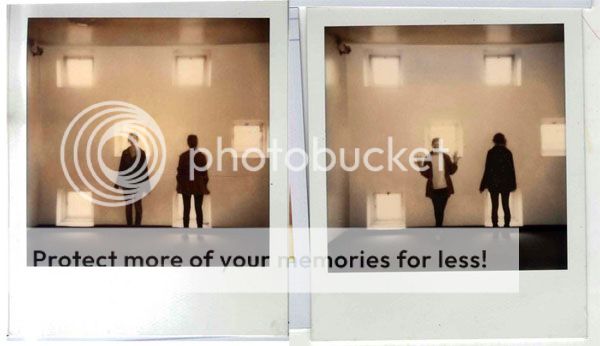* the picture above & the title is a quote from Walker Evans. This week a photography course was held at our school. Our visual arts education teacher invited a social documentary photographer,
Andrea Mosso, to share his professional experience with us. While showing us his work, which I found really impressing and emotionally involving (in the early nineties he documentated the tragical situation of homeless children and their lifestyle both in Bosnia and Romania, for example), he talked about how
to prepare a good reportage and it is the accurate homework and research which makes the difference. And how the
choice of different techniques and the
composition can affect the results of your work. I was really inspired by it all and
it gave me a whole different enthusiasm and energy to approach photography. We decided to start a little project which consists in a representation of the school as a space and the meaning of it (to us). But I'm not that enthusiastic about it. Therefore I shall do also a reportage on my own and I thought about a neighborhood as a space.
Garbatella, of which I've previously written (and posted pictures) about
here, is full of colours and it's really hard not to get inspired by it. I started today and as soon as I'll finish my reportage I'll share it here. In the meanwhile I thought I'd share some useful tips (which I found from
Brian Q. Webb blog) to make some good street photography.
1. Always, always have a camera with you. The reasoning behind this should be a no-brainer and if you’ve followed the prior two tips, should be a non-issue. If all you have is a pro-level dSLR with a huge white (or black with a gold ring) f2.8 telezoom and permanently fixed battery pack, then you might want to invest in something smaller and more portable as a “back up” that you can carry in your messenger bag or coat pocket. - so true,
you cannot afford to miss "the perfect situation".
And practice practice practice! That's what makes the difference.
2. Be proud! Yes, it’s a bit cliché, but confidence is key. You will be treated according to how you behave. If you’re off at a distance, half hiding behind a wall and sniping away with a 400mm cannon, you will be treated with suspicion and possibly confronted (not to mention eliminating the environment component of street photography). If you walk around pretending to be a ninja, imagining that you won’t be seen not only are you self-delusional, but once again your behavior will be met with suspicion and you will probably be confronted. However, if you keep your camera out and photograph confidently (respectful confidence, not obnoxious confidence) chances are that not only will you be left alone but that you will be ignored. The people around you will assume that you are doing what you are supposed to be doing. Counter-intuitive perhaps, but true. - I personally have some issues when it comes to taking pictures of people I don't know. I'm just too shy! But it's also true that a photographer should not be noticed by his models, otherwise they won't act naturally.
So be invisible!3. Use a fixed focal length lens. No, fixed lenses aren’t a quaint novelty. Generally speaking, they are faster and stop-for-stop sharper and cheaper then their zooming brethren. From the perspective of street photography, it lightens your load but more importantly it teaches you to pre-visualize your composition. Being able to know what you’re going to get before raising your camera to your eyes to shoot mitigates the need for you to make compositional adjustments and speeds up execution, an important skill in a pursuit where the moment must be captured, not created. In addition, using a fixed focal length lens allows you to make use of zone focusing (including hyperfocal technique) eliminating even more time from execution.4. Leave your camera at home. Find a nice city street with loads of foot traffic and a comfortable place to sit. Now, grab a latte, relax, and people-watch. Practice reading people’s motions and interactions. Developing the ability to predict human behavior is key in being able to capture that decisive moment, much more so then something like shutter lag.- I think this is the most important point.
The capability of observing a situation and getting to know it.
Who is your favourite (street) photographer?

























































